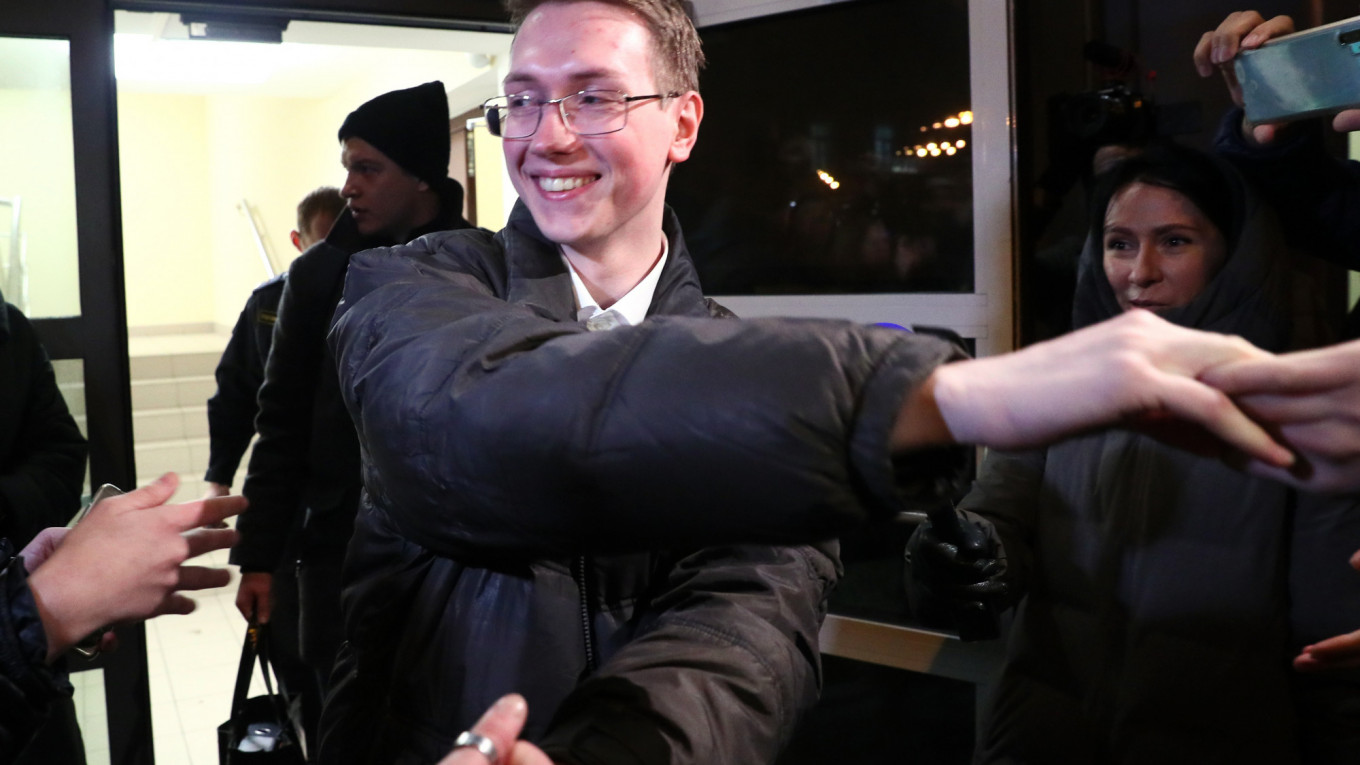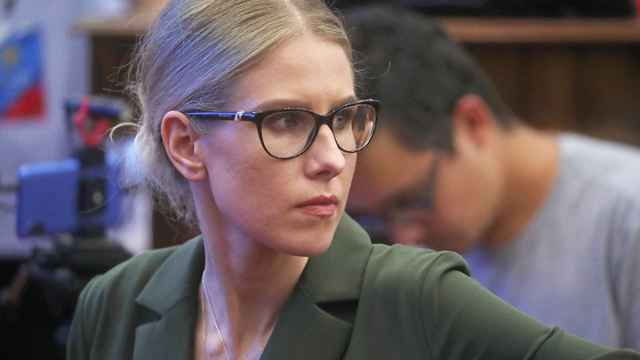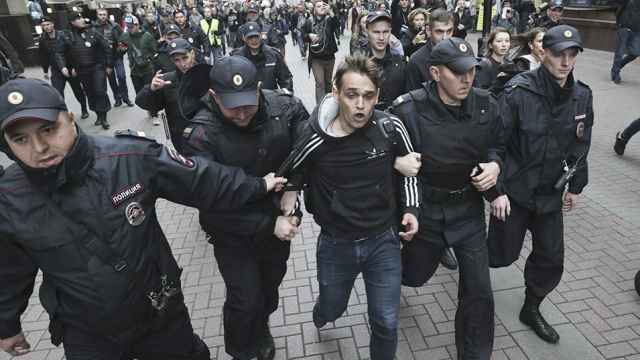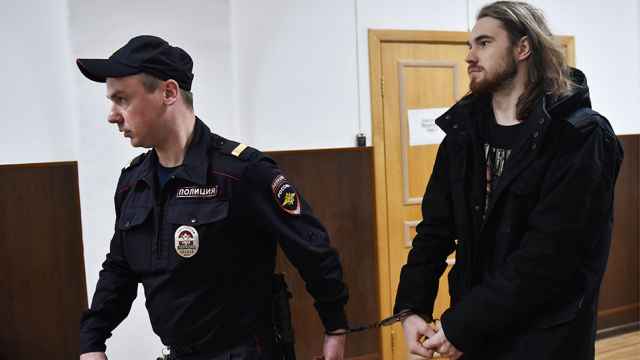A Moscow court has handed 21-year-old student Andrei Barshai a three-year suspended sentence on charges of assaulting a police officer during last summer’s opposition protests, the Mediazona news website reported.
Investigators accused the Moscow Aviation Institute student of pushing a National Guard officer during an unauthorized opposition rally on July 27. That rally against the exclusion of opposition candidates on the Moscow city council ballot became part of the largest sustained protest movement in the Russian capital in years.
The Meshchansky district court found Barshai guilty and ordered him to a three-year suspended sentence on Tuesday night, Mediazona reported. The sentence will allow him to avoid imprisonment.
Prosecutors had asked the court to sentence Barshai to three and a half years in prison. Charges of assaulting a police officer carry a maximum sentence of five years.
In his final statement, Barshai apologized to the National Guard officer he pushed.
"I would also like to add that over the past four months of imprisonment I have lost many things in my life. What I have gained inspires fear in me," Mediazona quoted Barshai as saying.
Moscow courts have gradually handed out lighter sentences for the activists and bystanders who were criminally charged following the protests, a move seen by observers as a response to widespread public outcry over the prosecutions.
Several of them were jailed from two to five years, triggering public backlash and calls to drop prosecutions in what Russian news media call the “Moscow Case.” Others, like actor Pavel Ustinov and student Yegor Zhukov, received suspended sentences, widely seen as the lightest possible punishment in a legal system that rarely issues not-guilty verdicts.
A Message from The Moscow Times:
Dear readers,
We are facing unprecedented challenges. Russia's Prosecutor General's Office has designated The Moscow Times as an "undesirable" organization, criminalizing our work and putting our staff at risk of prosecution. This follows our earlier unjust labeling as a "foreign agent."
These actions are direct attempts to silence independent journalism in Russia. The authorities claim our work "discredits the decisions of the Russian leadership." We see things differently: we strive to provide accurate, unbiased reporting on Russia.
We, the journalists of The Moscow Times, refuse to be silenced. But to continue our work, we need your help.
Your support, no matter how small, makes a world of difference. If you can, please support us monthly starting from just $2. It's quick to set up, and every contribution makes a significant impact.
By supporting The Moscow Times, you're defending open, independent journalism in the face of repression. Thank you for standing with us.
Remind me later.






